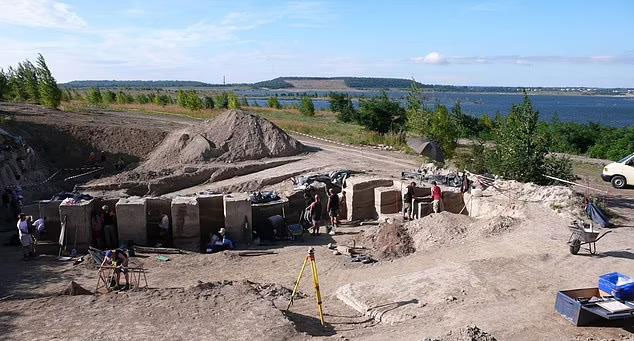125,000 years ago, a mysterious tribe cleared dense forests and established a sustainable settlement just like modern humans do today. However, they are not our ancestors; they are Neanderthals.
According to the Daily Mail, shocking evidence from the Neumark-Nord site near Leipzig, Germany, once again shows that Neanderthals were not the brutish species once thought. In fact, they may have reached a primitive version of what we now call “civilization” before we did.

Excavation site in the ancient birch forest near Leipzig, Germany
While archaeological evidence suggests that modern humans only began to consider altering nature for agriculture after the Ice Age, traces found in the German forest indicate that Neanderthals cleared it in ways that modern humans still use today.
Specifically, they used fire to burn the forest and tools to fell dense areas, establishing a stable settlement for several millennia.
Evidence from pollen sediment collected by a team of scientists from Leiden University in the Netherlands shows that the vegetation changed from dense forest to open vegetation during the 2,000 years the Neanderthals inhabited the area.
This serves as a concrete example affirming that Homo sapiens were not the first to consider altering nature for their livelihoods.
At the site, scientists also collected a large number of high-quality tools, including intricately crafted flint tools.
After the Neanderthals left, the forest recovered and became dense with birch trees again. This indicates that many generations of Neanderthals persisted in their efforts to clear and modify the environment to create a suitable living space.
Neanderthals are believed to have gone extinct around 30,000 years ago and were a close relative, belonging to the genus Homo alongside modern humans, Homo sapiens.


















































